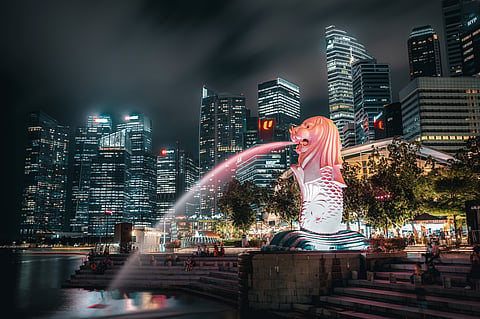
- Destinations
- Experiences
- Stay
- What's new
- Editor’s Picks
- Responsible Tourism
- CampaignsCampaigns
- Subscribe

According to a new global survey, Singapore and Zurich have surpassed New York to become the world’s most expensive cities this year. Singapore is a vibrant and exciting destination with a modern skyline, diverse cultural experiences, and delicious cuisine. However, as one of the world's most expensive cities, tourists must spend smartly.
We have compiled an extensive guide to ensure you make the most of your trip to Singapore without overspending. Follow our tips and tricks, and you can manage your finances efficiently while enjoying all Singapore offers.
To save money on your trip to Singapore, buy bundled tickets in advance for major tourist attractions or explore free activities such as hiking or visiting places of worship. Avoid booking hotels during Singapore school holidays and public holidays such as Chinese New Year, National Day, and Formula 1 Grand Prix. Check Singapore's annual public holiday calendar to identify long weekends and avoid peak rates.
Consider budget accommodations like hostels or hotels in Little India or Chinatown. Use online booking platforms to compare prices. Accommodation in Singapore is expensive. A bunk bed in a crowded hostel dorm costs INR 1,248 (SGD 20) or more. Opt for hostels over hotels to save money. Couch surfing with expats is a great way to sleep for free and get local insights on budget travel in Singapore.
For more information on hostels and couch surfing, check here and here.
Tourists often forget to buy Singapore's transportation card, which can reduce extra expenses. You can easily buy an EZ-Link card for INR 748 (SGD 12) at train stations or INR 624 (SGD 10) at 7-Eleven minimarts. The card is versatile and can be used on both LRT and MRT trains and buses. With EZ-Link, you only pay for the distance you travel, making your transportation experience in Singapore more affordable and convenient.
More information here.
Singapore has many shopping malls, and even Changi Airport is one. They can be expensive, so shop at affordable stores in Chinatown and Little India instead. Remember to haggle. For snacks, drinks, and toiletries, visit the large supermarkets in major malls. VivoMart, under VivoCity, often has special deals.
Singapore has safe tap water, a cost-effective alternative to bottled water. You can refill a small bottle for free at hotels or directly from the tap. Singapore is famous for its food courts, halls, and hawker street stalls. Street food is safe and essential to the Singaporean experience. Street food quality is higher than in many other Southeast Asian countries. You can have a satisfying meal for under INR 375 (SGD 6) at food halls or even under INR 190 (SGD 3) for noodle soup. For budget-friendly options, visit the Chinatown food centre or the Lau Pa Sat food centre near the Raffles MRT stop.
Discover free art displays, public performances, and street performers along the riverfront, esplanade, and city centre. Keep an eye out for waived museum entrance fees on special exhibition days. Consider tourist passes for discounted entrance fees at various attractions, but only if you plan on indoor sightseeing.
You can reach Singapore from India via direct or connecting flights from major cities like Delhi, Mumbai, Chennai, Kolkata, and Bengaluru to Singapore's Changi Airport (SIN). Airlines offer frequent services for this route.
